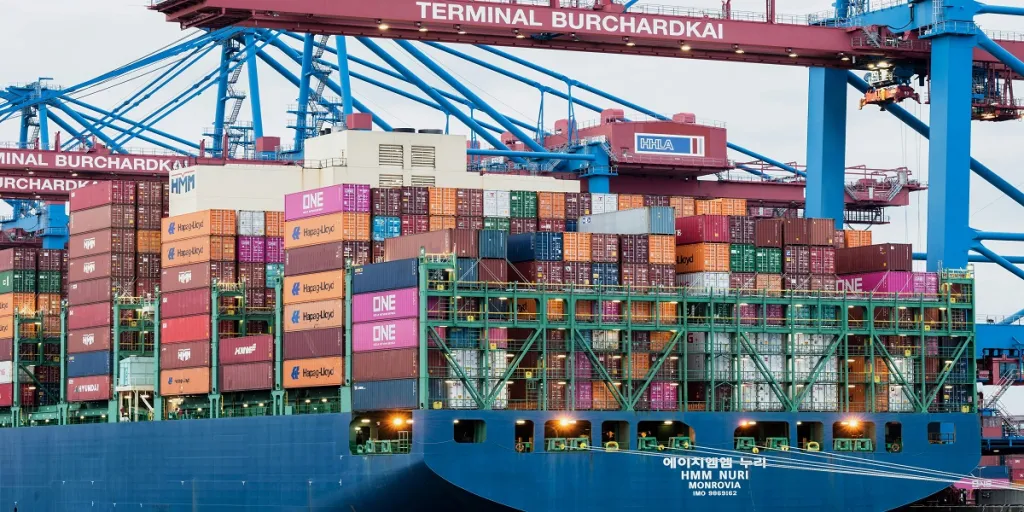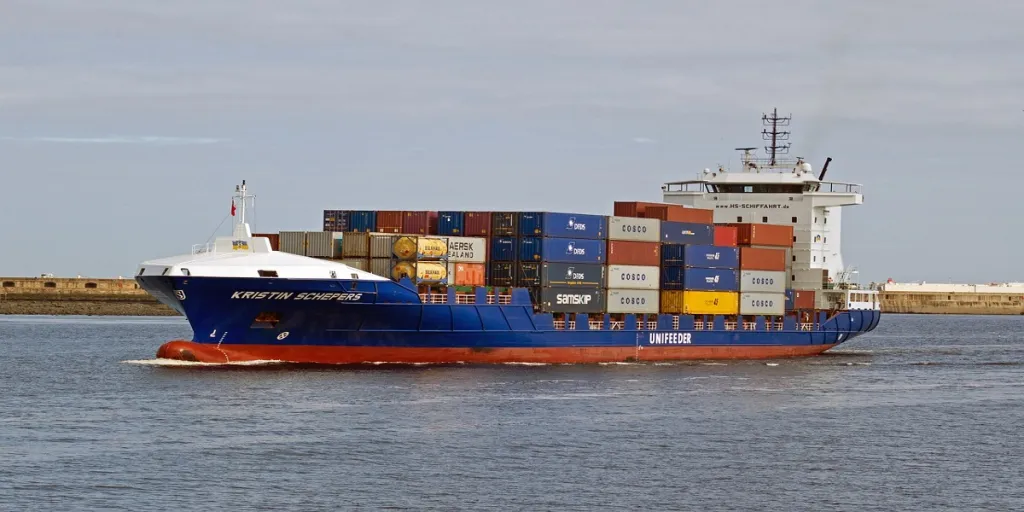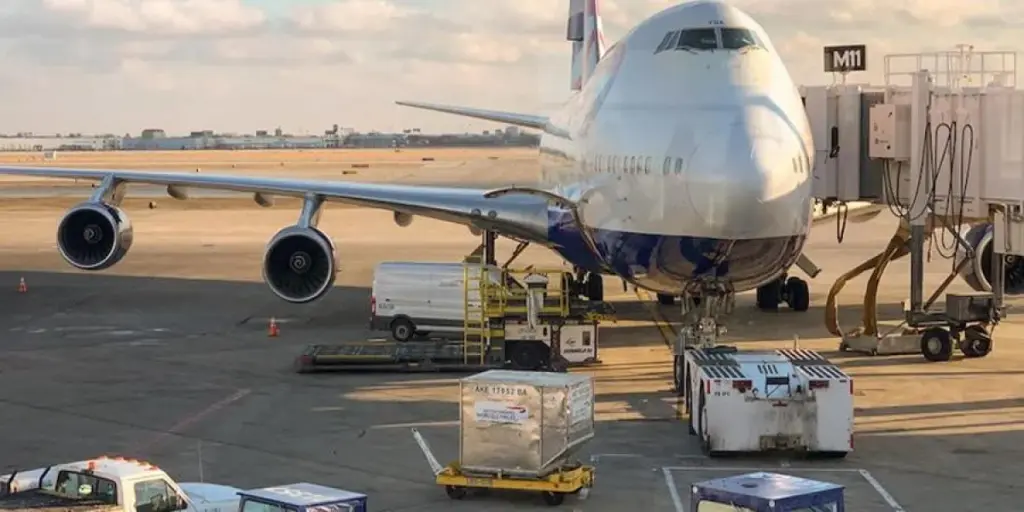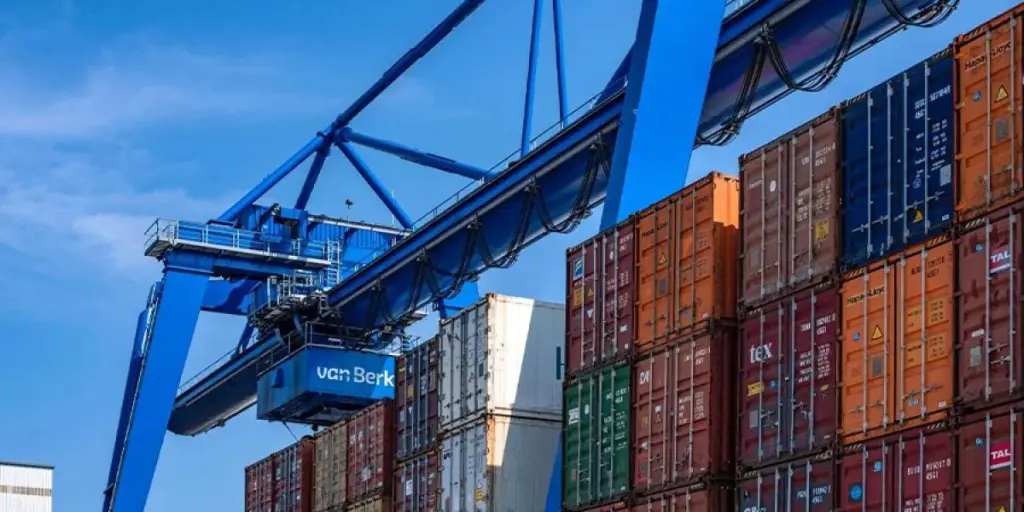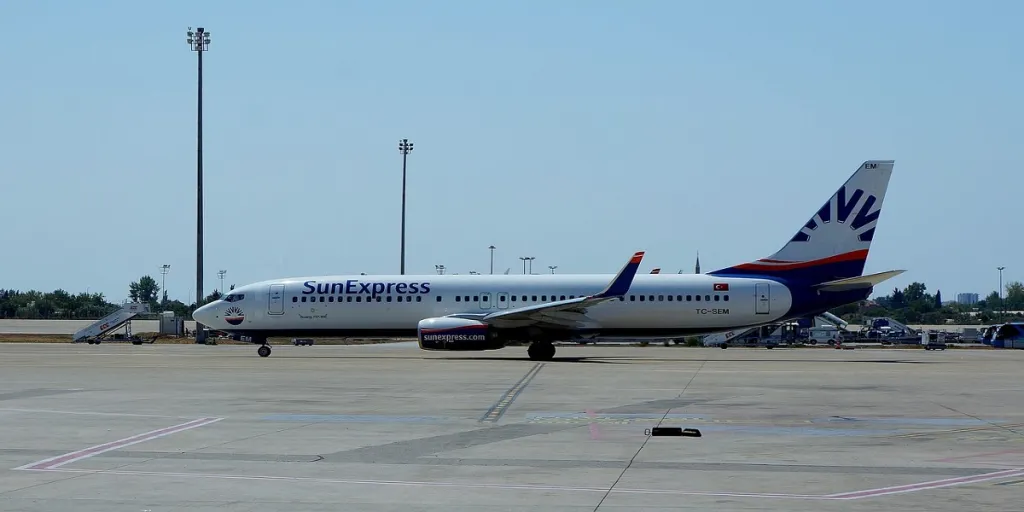Upon hearing the term “procurement”, many people automatically associate it with bulk, long-term purchases rather than simple, smaller, or one-off transactions. That’s probably why the concept of freight procurement is often linked with a complex purchasing process intended primarily for fulfilling larger requirements, as opposed to accommodating smaller demands.
But what if there are actually diverse freight procurement strategies available to accommodate a wide range of requirements, catering to both high and low shipment volumes?
Read on to discover such a list of freight procurement strategies that are applicable, the major considerations for freight procurement together with the future outlook of freight procurement.
Table of Contents
Understanding freight procurement
Must-have considerations of freight procurement
List of freight procurement strategies
Future outlook of freight procurement
Toward a seamless flow
Understanding freight procurement
To put it simply, freight procurement is the process of identifying, negotiating, and managing transport companies that can deliver goods and services in the most efficient and cost-effective ways. To go into detail, however, it involves many more tasks including the right transport provider selection, contracts and rates negotiation, routes optimizations, shipment tracking, etc., tasks revolve around the same concept of coordinating transportation effectively. On top of these, it often integrates other relevant processes such as demand forecasting, inventory management, and logistics planning.
Based on its definition, understandably, one might wonder, what is the difference between freight procurement and a standard, normal freight arrangement? The main difference lies in the level of strategic approach, relevant planning, and management. Standard freight arrangements typically involve hiring transport services on a case-by-case, transactional basis whenever needed, therefore, there’s practically not much strategic planning and monitoring involved.
Freight procurement, on the other hand, requires a strategic approach in transport providers selection for long-term partnerships rooted in their cost-efficiency and dependability. That’s why shippers with bulk shipments and regular deliveries to multiple destinations over an extended period of time normally prefer strategic freight procurement.
Must-have considerations of freight procurement

The economic impact
In view of inflation and economic uncertainty caused by trade tensions, geopolitical issues, and post-pandemic effects, the importance of strategic planning and agility in freight management is highly accentuated. According to various forecasts from renowned international trade organizations worldwide, the role of effective freight procurement is becoming increasingly indispensable in light of the expected global economic slowdown.
For example, the World Trade Organization (WTO) forecasted a decline in world trade growth from 9.5% in 2021 to 4.0% in 2022 and 1.0% in 2023. The International Monetary Fund (IMF), on the other hand, echoed the prediction with slightly more optimism with a 2.8% economic growth prediction in 2023.
As one may have already discerned, such an economic downturn will inevitably impact both the demand for and supply of freight services, as well as the costs of the global supply chain industry. Shippers must take note of these developments and standby to readily revise contracts, projections, and budgets while keeping a watchful eye on freight market circumstances and acting swiftly in response to any changes or opportunities.
The technology impact
In the meantime, technology acts as a leveling factor in the face of economic uncertainty by increasing efficiency and minimizing potential human errors. Through increased efficiency, visibility, and performance, technology’s involvement in freight procurement is altering both the freight procurement procedures and outcomes. By offering automation, data-oriented analysis, and diverse technology assimilations, technology may also help to simplify the intricacies and difficulties of the freight process.
Artificial intelligence (AI), blockchain, the Internet of Things (IoT), and freight procurement automation, as well as data analytics are some of the technologies that are anticipated to mold freight procurement processes. For example, artificial intelligence can boost the problem-solving process in the freight procurement industry through practical analysis applications. It can assist shippers in identifying errors and discrepancies in invoices from carriers, automating payments, and managing contracts. The blockchain, at the same time, helps to improve security, and transparency through smart contracts and doing away with middlemen.
The IoT, on the other hand, can enhance traceability and clarity in freight procurement by using sensors and wireless networks for remote monitoring. Meanwhile, the automation process helps to streamline management, invoicing, etc. administrative tasks, whereas data analytics offer insights and spot trends for better decision-making.
The environmental impact
On top of the above two considerations, sustainability, which has transcended from a trendy term to become an imperative in business operations, is another essential aspect of freight procurement. Taking into account increasing pressure from customers and authorities, businesses are now more actively implementing or considering sustainability in logistics to mitigate their environmental footprint and align with sustainability guidelines.
Aside from making a significant eco-friendly impact, adopting sustainability practices in freight procurement can yield several more advantages, such as cost savings, enhanced reputation, increased customer loyalty, and a competitive edge. Some of the ways businesses incorporate sustainability into their processes include prioritizing freight partners that utilize renewable energy, and low-emission transportation to help reduce their carbon footprint.
At the same time, many businesses committed to sustainable logistics choose to collaborate with transport companies that champion fuel efficiency, waste management, and circular economy initiatives such as eco-labeling and green packaging. It is also worth noting that each year, Customs, safety, environmental compliance, as well as penalty requirements are becoming more complex and stringent in multiple regions.
List of freight procurement strategies

With the aforementioned three major considerations of freight procurement in mind, let’s examine the freight procurement strategies suitable for both shippers with sizable freight volume and low or medium freight volume as follows:
Top traditional & new freight procurement strategies for shippers with sizable freight volumes
- Contract procurement
This is a traditional, comprehensive freight strategy that incorporates similar conventional approaches such as dedicated procurement and capacity assurance. Shippers commit to long-term contracts, typically annual or sometimes multi-year contracts with transportation companies for predetermined rates and offering costs.
And as you may have already inferred, often, these predefined rates fall short in today’s volatile market. Yet, there are certain advantages to pre-established agreements. For example, in reciprocation, the shippers may reserve specific capacity for designated purposes or routes under the dedicated procurement method included in the contract for service consistency.
Meanwhile, the capacity assurance included in contract procurement may also help to guarantee capacity availability for peak seasons or in tight markets, potentially at a premium. Together, these strategies offer different levels of certainty, help to improve service levels, and mitigate risks of market volatility within contract procurement.
This strategy is suitable for shippers with sizable freight volumes because they can leverage their scale and predictability to negotiate favorable terms and conditions with carriers while ensuring consistent capacity and service quality across their network.
- Agile procurement
An agile procurement strategy is a relatively new method as it is derived from the agile methodology, which originated from the software industry around the early 2000s. As its name implies, it encompasses quick adjustments in freight requirements and operations, including flexible contracts that allow adaptable changes, or switching to alternative suppliers and diverse shipping modes whenever needed. The relevance of agile procurement lies in its flexibility, quick response time, and ability to adapt to changing market dynamics.
Shippers with high freight volume require agility in their procurement strategy because it not only ensures them to be able to adapt swiftly to market volatility and their demands fluctuation, but also enables them to maintain a competitive advantage in a rapidly evolving market, staying ahead of their competitors. Consequently, this strategy helps shippers with high freight volume in better navigating the market’s ambiguity and complexity.
- Predictive analytics
Making full use of data analytics, AI, and machine learning technologies, predictive analytics help shippers forecast future trends and demands, or prepare for potential disruptions in the supply chain. It can be used to predict shipping volumes and costs and also to analyze traffic, routes, delivery schedules, and vehicle conditions to enable instantaneous decisions about the most efficient shipping routes and modes.
Utilizing information from consumer reviews, product evaluations, and market research, this new strategy also allows shippers to increase their innovation and competitiveness while enhancing customer satisfaction at the same time.
It is of significance to note that this strategy is also good to be applied together with other strategies such as the contract procurement method and autonomous freight procurement. Predictive analytics provides data about supplier performance, quality, risk, etc. essential supplier selection analysis, thereby helping shippers in their supplier selection process as well as contract negotiations.
The blend of predictive analytics and autonomous freight procurement can further provide a seamless flow in the freight procurement process. Predictive analytics forecasts upcoming trends from past data, facilitating strategic planning, the AI-powered autonomous procurement then reacts in real-time to automate sourcing, booking, and market adaptability, thereby boosting efficiency and agility.
This strategy is suitable for shippers with sizable freight volumes because they can deploy and leverage advanced technology to handle large volumes of transactions and data, thereby achieving speed, accuracy, and scalability in the entire procurement operations. This strategy also allows them to proactively adjust their procurement strategies in order to ensure a smoother supply chain operation.
Top traditional & new freight procurement strategies for shippers with small and medium freight volumes
- Spot procurement
The spot procurement strategy is a traditional way to secure immediate freight services at current market prices, as opposed to pre-negotiated contract rates. Shippers can utilize the spot market to secure carrier capacity as needed, especially when rates are favorable. For instance, during a slow season with excess carrier capacity, shippers may turn to the spot market for lower rates compared to any existing contracted rates that they have. In other words, it is a sourcing of one-time or irregular shipment capacity at current rates based on demand and supply.
This strategy can help shippers take advantage of lower prices, access more options, and respond to urgent needs on a transactional basis. This strategy is suitable for shippers with small and medium freight volumes because they can benefit from the flexibility and availability of the spot market, especially when their demand is uncertain or fluctuating, or when their contract capacity is insufficient or unavailable.
- Risk management
Another traditional but essential time-lasting strategy that is applicable to shippers with lower volume is the risk management procurement strategy. This strategy aids small and medium-volume shippers by ensuring business continuity through contingency planning for unforeseen circumstances such as supplier failures or transport disruptions.
It helps small shippers improve their cost efficiency by identifying and mitigating risks to prevent unexpected costs related to delays or damages. With proper risk analysis and management, this strategy also contributes to supply chain stability, is important in maintaining customer satisfaction, and guides the selection of dependable vendors, reducing service interruptions.
- Ecommerce fulfillment services
By taking over the complexities of inventory management, packing, and shipping operations, ecommerce fulfillment services provide small and medium-volume shippers with a relatively new but valuable procurement strategy. These services can be a cost-effective solution for smaller shippers who lack the scale to run their own warehouses or negotiate favorable shipping rates. Instead, they provide a more affordable option than building up all of one’s own logistical resources.
When compared to the considerable investment needed to establish and maintain extensive in-house logistics capabilities, these fulfillment services enable significant cost savings at a lower fulfillment cost by providing access to bulk shipping rates. Lower volume shippers can now reach wider markets through integrated shipping networks of these fulfillment services, fostering business expansion while ensuring faster delivery times and efficient order processing to enhance customer satisfaction.
In short, these services empower small-volume shippers with the ability to dynamically scale up their operations in response to demand changes without having to make substantial infrastructure expenditures.
- Digital freight marketplaces
Both shippers with larger volumes and small to medium-sized shippers can reap the benefits of utilizing digital freight marketplaces to find carriers. These platforms particularly benefit smaller volume shippers by providing greater adaptability to them, granting them access to a vast network of carriers and the opportunity to consolidate their shipments with those of other businesses, thereby securing competitive and discounted rates.
Offering real-time visibility into pricing, capacity, and shipment status, digital freight marketplaces enhance freight procurement for small and medium-volume shippers by improving their decision-making process and centralizing their freight management operations to simplify booking, tracking, and payment processes.
These platforms, therefore, assist smaller volume shippers by promoting speed and efficiency in freight booking and management, ultimately saving time and streamlining their freight operations.
Future outlook of freight procurement
Technology advancement, spearheaded by AI and machine learning is anticipated to continue to lead the key trajectory of freight procurement trends in the near future. Emerging trends involving drones, autonomous vehicles, blockchain, IoT, etc. are not only shaping the future of freight forwarding but also placing a strong emphasis on resilience, facilitating digital transformation, and fostering environmental sustainability. All of these contribute to evolving technology advancements such as enhanced digital freight marketplaces and procurement automation, which hold the potential to revolutionize this sector even further.
While it’s no secret that consumers are spoiled by choices nowadays in view of the advancement and development in freight transportation, they are (or we are!) also undoubtedly getting increasingly more and more demanding. Rising customer demand for faster, cheaper, and more reliable delivery summons responsive and customized solutions. Moving forward, freight procurement teams are expected to be able to counter these demands with sophisticated real-time track-and-trace capabilities and increasing green packaging options, in order to adapt to these service quality and sustainability expectations.
Simultaneously, ever-tightening environmental regulations and sustainability considerations in freight transportation become a constant. To the freight procurement associations, compliance with carbon emission reduction, and multiple sustainable practices implementations such as fuel-efficient routing will apparently mandate a preference for collaboration with environmentally-conscious carriers in the near future.
Toward a seamless flow
Although freight procurement is often associated with bulk shipments and regular deliveries to multiple destinations over an extended period of time, it is essentially about establishing strategic relationships with transport companies to get the goods delivered in the most streamlined and seamless way.
Economic factors, technological advancements, and sustainability considerations are the three major driving forces shaping the freight procurement field. A detailed list of procurement strategies suitable for both high, medium, and low-volume shippers includes traditional methods such as contract procurement and spot buying, to more innovative approaches involving AI, machine learning, and digital freight marketplaces.
The future outlook of freight procurement is predicted to be shaped by technological innovation, evolving customer demand, and stricter environmental regulation. To learn more about logistics knowledge, gain insight into innovative wholesale business ideas, and explore extensive sourcing guides, visit Chovm Reads, your next game-changing idea could be just a click away.
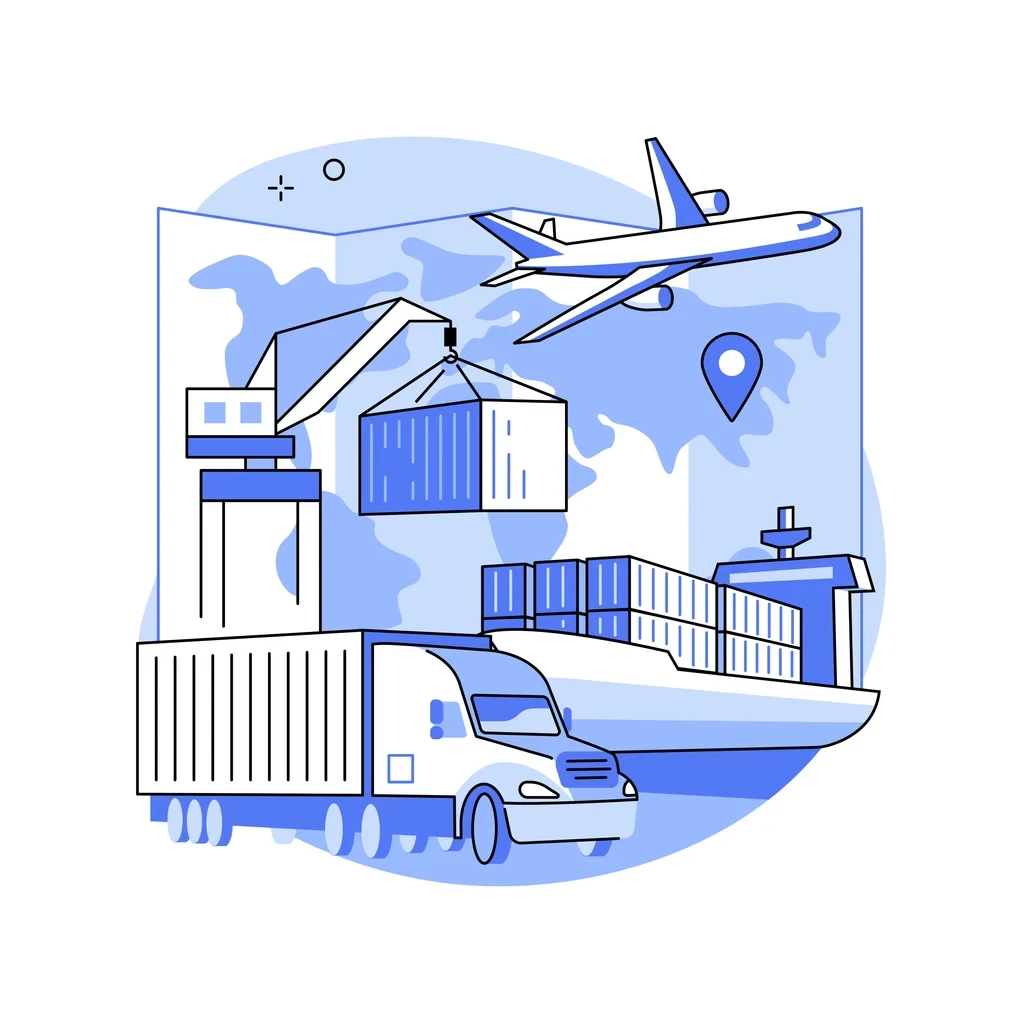
Looking for a logistics solution with competitive pricing, full visibility, and readily accessible customer support? Check out the Chovm.com Logistics Marketplace today.
